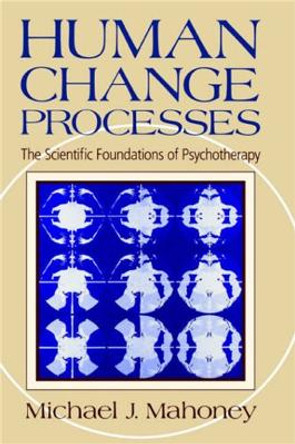Description
About the Author
Ian Evans completed his PhD in experimental and clinical psychology in 1970 at the Institute of Psychiatry, London University, under the supervision of Hans J. Eysenck. His first academic position was at the University of Hawaii, before moving to the State University of New York at Binghamton where he was director of clinical training for 12 years. He then moved to New Zealand and directed a clinical program as well as later being Head of School of Psychology at Massey University. His research interests include positive approaches to challenging behavior in children with severe disabilities, the emotional development of children at home and at school, and the theory, practice, and ethics of culturally informed cognitive-behavior therapy.
Reviews
A very good read for any current or aspiring cognitive and behavioural therapist. * Carla Lane, The Journal of Critical Psychology, Counselling and Psychotherapy *
Every now and then, and this book is a prime representative, almost every page has indicators of importance and, in some cases, whole pages and series of pages. . . It is very thought-provoking, clear, thorough, and well done. * Howard A. Paul, PhD, ABPP; Child & Family Behavior Therapy, 38:1, April 2016 *
The book is refreshingly non-partisan and does not attempt to convince the reader of the superiority of any particular approach to cognitive psychotherapy. Instead it discusses essential concepts, reviews the most important research in a clear and succinct way, and helps readers draw their own conclusions about the value of any particular approach. Rather than concentrating on unhelpful 'problematic' thinking, this book focuses on thinking that is constructive * that does us good, solves problems, improves relationships, and leads to better mental health including positive feelings and positive behavior change. The author's highly personable, non-technical, clear, and occasionally humorous writing style makes the content not only accessible to academics but to anyone interested in modern psychotherapy.Georg H. Eifert, PhD, Professor Emeritus of Psychology, Crean College of Health & Behavioral Sciences, Chapman University *
Further advancing How and Why People Change (Evans, 2013), Evans presents the 'broadest possible interpretation of what cognitive therapy is all about' in this remarkable synthesis of diverse cognitive therapies with plenty of clinical case examples. Written in a beautiful style, How and Why Thoughts Change is a must-read for graduate students and professional clinical psychologists to appreciate general principles and methods of positive cognitive change in psychotherapies. * Junko Tanaka-Matsumi, Ph.D., Dean, School of Humanities, and Professor of Psychology, Kwansei Gakuin University, Japan, and Professor Emeritus, Hofstra University *
Evidence-based accounts of cognitive change in psychological therapies are still in the process of being refined. In this latest contribution, Dr. Ian Evans provides an important and timely conceptual synthesis of change mechanisms and how interventions directly and indirectly target a client's negatively biased thought content and process. The result is an elegant account of cognitive and cognitive-behavior therapies that will be useful for individualized case formulation and treatment planning, and the provision of clear rationales for interventions during consultation sessions. * Nikolaos Kazantzis, PhD, Associate Professor and Director the Cognitive Behavior Therapy Research Unit, Monash University, and author of The Therapeutic Relationship in Cognitive Behavior Therapy and Cognitive and Behavior Theories in Clinical Practice *
Engaging, humorous, enlightening, and well-paced I would suggest that any practitioner who is interested in what a client thinks about their situation will benefit from reading ^iHow and Why Thoughts Change^r. I would also recommend it to clinical and counselling psychology students, as a foundational text which should be read before they dive into hardcore cognitive therapy. * Psychology Aotearoa *
Book Information
ISBN 9780199380848
Author Ian M. Evans
Format Hardback
Page Count 278
Imprint Oxford University Press Inc
Publisher Oxford University Press Inc
Weight(grams) 340g
Dimensions(mm) 155mm * 231mm * 18mm






